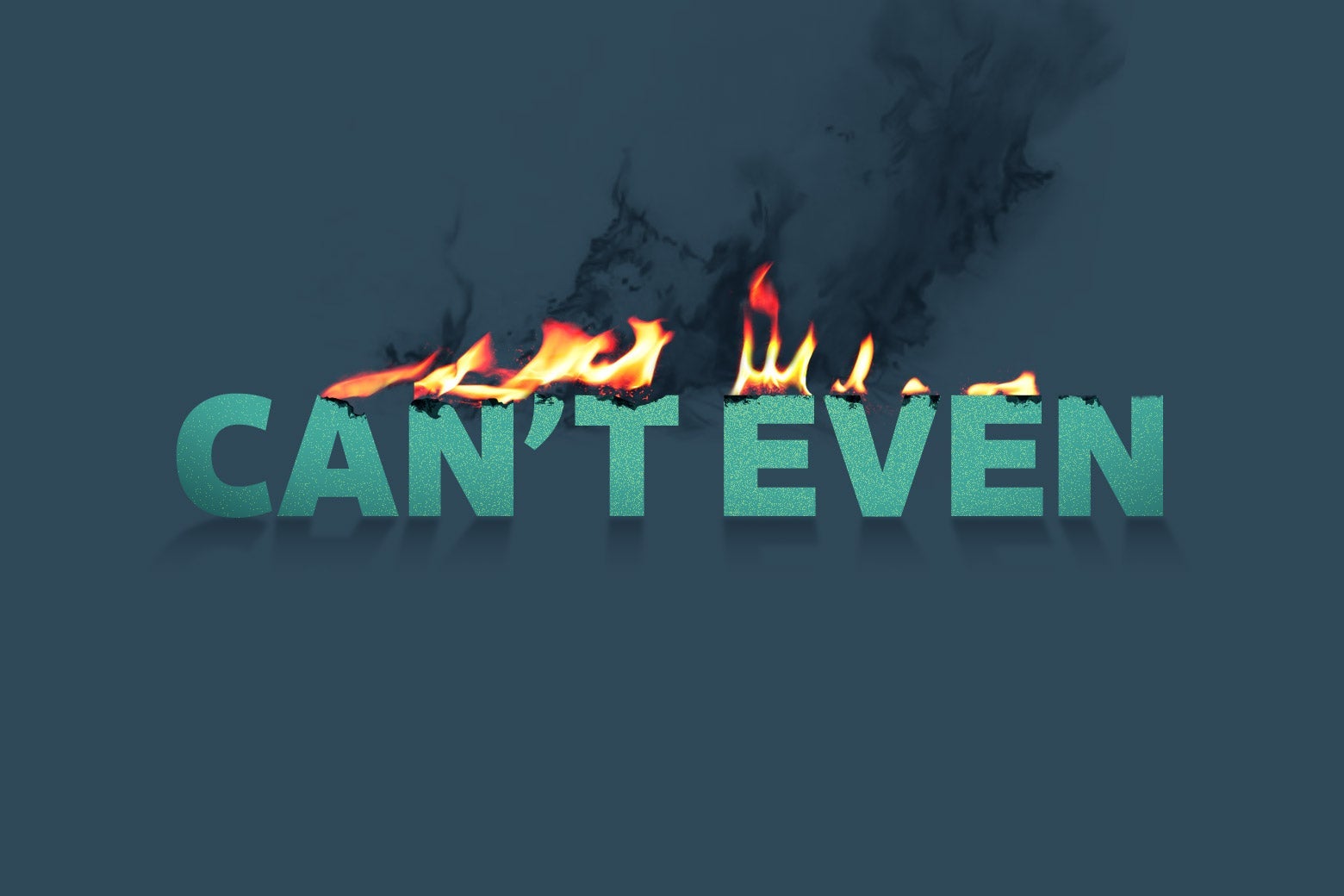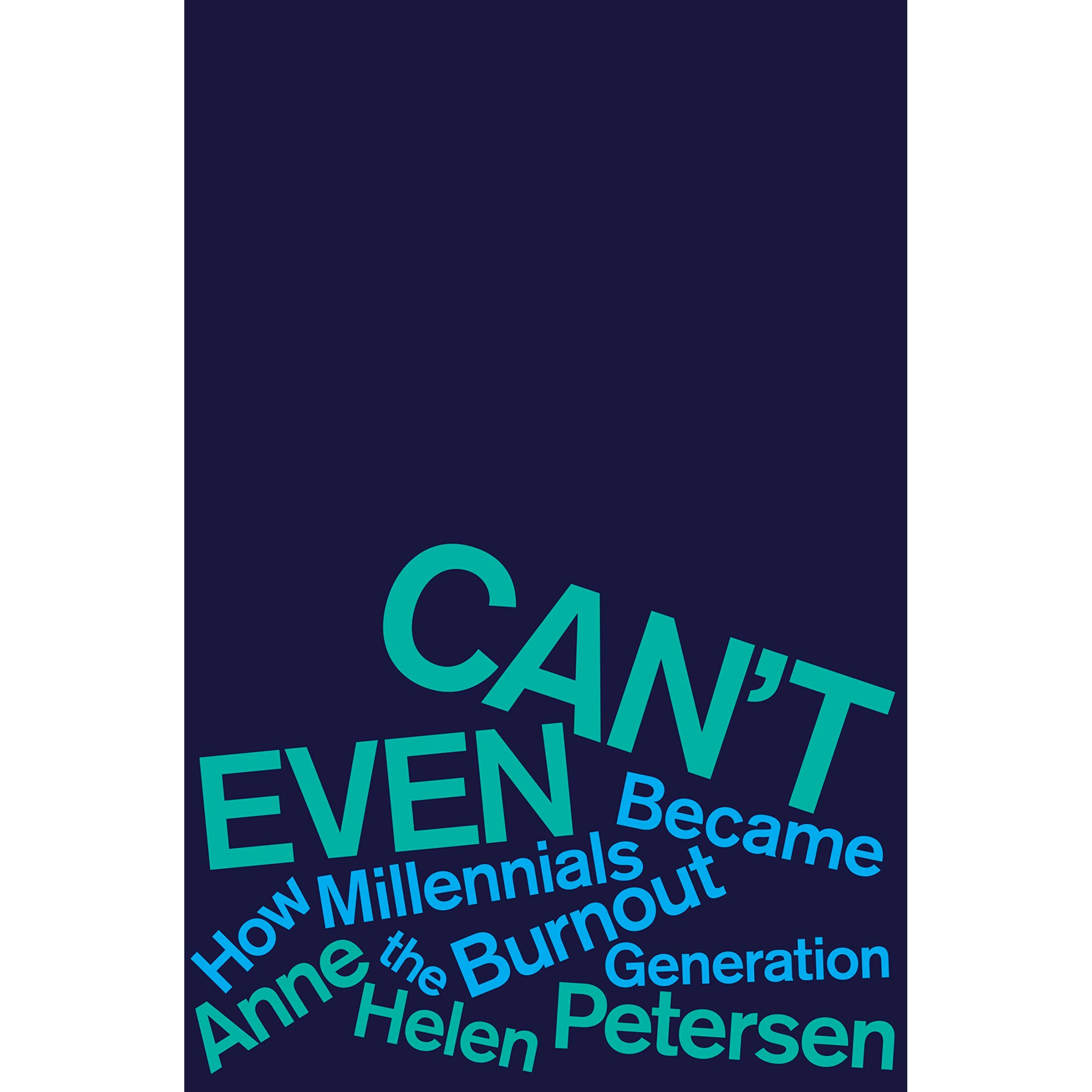Slate has relationships with various online retailers. If you buy something through our links, Slate may earn an affiliate commission. We update links when possible, but note that deals can expire and all prices are subject to change. All prices were up to date at the time of publication.
When Anne Helen Petersen’s editor at BuzzFeed suggested that she was burned out, Petersen’s reaction was to write an essay on burnout. That essay, published in January 2019, went megaviral. So naturally, Petersen then wrote a book on burnout, which was published on Tuesday. If this sounds like a short turnaround for a full book, Petersen agrees. In her newsletter, she presents herself as a martyr for the cause: She began book leave in early June 2019, writing in a newsletter entry that the work was “absolutely going to give me burnout while writing a burnout book.” By Aug. 18 of that year, she’d submitted a draft, 78,909 words long, and in September, she was back traveling and writing for BuzzFeed, meaning she had to complete revisions on the book at night and on weekends. “I’m going to burn out again during the editing process,” she lamented. But she pushed forward so that the book could be released into the “pissed off, dissatisfied” energy prior to the November 2020 election and also—she’s not shy about hinting at this—have the best chance of being a hit.
At its best, Can’t Even: How Millennials Became the Burnout Generation succeeds in making its case for overhauling society as a means of addressing the deep, personal exhaustion that afflicts many of us. It can be read as a recent history of work in America, one that rightly and horrifyingly emphasizes how taxed and ill-supported many, many, many people are in this country. There are facts in this book that make me feel enthused about voting, to the extent that I have any remaining capacity to be more enthused about voting. For example: “In 1950, CEOs made about 20 times more than the regular employee, by 2013, they made more than 204 times more.” That’s from a chapter titled “Our Burnt Out Parents.” The book attempts to evade a main criticism of the viral essay—that its focus on millennials as the “burnout generation” ignores the related plights of everyone else—by occasionally noting that obviously everyone is, to some extent, burned out.
The idea that other generations were burned out too is somehow used as supporting evidence for the title thesis. In a chapter titled “How Work Got So Shitty,” Petersen explains a ’70s temp agency that advertised “Kelly Girls”—secretaries and typists who could fill in at a moment’s notice and even came with a money-back guarantee—as the clear prototypes of the gig workers who don’t require vacation days or dental care today. Still, “How Work Got So Shitty” is the best chapter because it offers a clear evolution on how pay declined as expectations and surveillance at work rose. This is the best supporting evidence for the argument that millennials are indeed more burned out than anyone else. It’s also the chapter in which I learned what consultants do—figure out how to reduce jobs and lay people off!
In the book’s concluding chapter, “Burn It All Down,” Petersen delivers a call to action. “We shouldn’t be this worried, this terrified, this anxious, about everything,” she writes. This sentence is accurate, and feels truer now in a post-RBG coronavirus-laden end-of-democracy-impending America than it possibly could have in January, when Petersen was finishing up edits on the book. (COVID-19 is confined to an author’s note at the beginning, which feels less weird than I expected it would.) Petersen briefly lays out the solution:
We can unite in our resistance to the way things are. We can refuse to blame ourselves for wide-scale societal failures … we can recognize that it’s not enough to try to make things better for ourselves. We have to make things better for everyone. Which is why actual substantive change has to come from the public sector—and we must vote en masse to elect politicians who will agitate for it tirelessly.
This is correct, of course, if not entirely novel, nor a particularly precise path forward. Notably, Petersen does not give instructions on whom to vote for, or what new ways we might “unite in our resistance,” after a solid four years of attempting to “unite in our resistance.” In some ways, the book itself feels like an artifact of resistance culture: yet another call to an undefined action, swathed in a pretty cover. There’s even matching swag: Those who preordered Can’t Even received a planner that said “This Won’t Fix Your Burnout” and were eligible to win a crew neck sweater with “Capitalism Is Broken” tastefully stitched on the upper chest as well as a tote that says “F*ck Passion, Pay Me” (censorship is the tote’s). Still, as I read Can’t Even, I was bolstered by the idea that maybe this book will help people blame themselves a little less and fight for systemic change a little more. Coming at the close of a different book, a passionate-if-vague rallying cry might have left me feeling personally galvanized, eager to recommend Can’t Even to everyone I know. After all, who does know what to do right now? It can feel good to just yell.
Instead, the main feeling I had reading Can’t Even was one of annoyance. Like the viral essay that came before it, Can’t Even insists that burnout is an affliction that is most likely to affect you based on what years you were born, as opposed to, say, the result of some intersection of generational wealth, gender, subjugation to racism, and, yes, the particular level of technological surveillance hell under which your job takes place. (Older generations can suffer this too, by the way.) It repeatedly acknowledges that, yes, everyone is burned out; yes, marginalized people are more burned out—a chapter on parenting emphasizes that raising kids, and the resulting parenting burnout, is typically the purview of women. It quotes writer Tiana Clark’s response to the original viral essay: “No matter the movement or era, being burned out has been the steady state of black people in this country for hundreds of years.“ It even notes in the emergency COVID author’s note that “the overarching clarity offered by this pandemic is that it’s not any single generation that’s broken or fucked or failed.” But in a have-your-big-thesis-and-whack-it-over-the-head-too situation, it of course argues that millennials are “the burnout generation.”
This book simplifies its message for an understandable reason. Can’t Even isn’t just a history or a call to action—it’s a rebuttal. “Millennials are burned out” is a rejoinder to “Millennials are lazy,” or, as Petersen puts it, a response to the “boomer refrain” of “stop whining, millennials—you don’t know what hard work is.” To argue directly against the idea that millennials are lazy, you first have to accept that it is an evidence-based argument based on a meaningful pattern of millennial behavior, rather than, perhaps, an ad hoc insult sputtered through the haze of someone’s own exhaustion and need to feel superior. Nevertheless, Petersen takes the accusation at face value, agreeing that we are sort of incompetent, unable to keep up with basic errands or remove ourselves from the lull of our phone screens. She would just like to clarify that our apparent shortcomings are not because of laziness—nor, apparently, are they the result of structural oppressions that have existed in some form or another for centuries—but because of burnout, a new affliction plaguing a newly adult generation.
The book includes large first-person sections on Petersen’s own experience as a millennial. In sections where she uses the first-person plural—we millennials—her portrait of the millennial becomes clear, and it’s cartoonish. The book posits that “it’s not enough to hang out” with friends but “there has to be a purpose,” not that we even have time to hang out with friends beyond group texts (group texts, another place where there is no fun to be had), because “finding time when everyone’s schedules align means planning four months in advance.” We don’t date much because “dating deters from the time you could be working.” If, in an open-office plan, you put on headphones, you’ll be met with “suggestions that you’re a cold bitch.” We are beholden to Instagram, where “we post, therefore we are.” To advertise one’s intelligence, in addition to staying atop all the highbrow cultured stuff, one also feels pressure to know “the plot turns of the entire Real Housewives franchise.” If this is hyperbole, it didn’t register for me.
Petersen concludes a chapter on how the likes of Instagram and Slack grind us into the ground by making millennials (specifically, her) set sky-high expectations for themselves:
I need to be an insanely productive writer and be funny on Slack, and post good links on Twitter and keep the house clean and cook a fun new recipe from Pinterest, and track my exercise on MapMyRun and text my friends to ask questions about their growing children and check in with my mom and grow tomatoes in the backyard and shower and put on cute clothes for that thirty minute video call with my coworkers and and and and.
But does she, really? Petersen later writes that “burnout occurs when the distance between the ideal and the possible lived reality becomes too much to bear.” If our problem is that we’re striving for an ideal that’s unrealistic, one set forth by social media, there’s some adjustment of personal values that can be done. But instead of modifying the ideal for herself by calling for broad acceptance of boring jobs and shitty Instagram posts, or for no Instagram posts and certainly no tomatoes, Petersen instead suggests that nothing can be changed until all of society changes.
Can’t Even: How Millennials Became the Burnout Generation
By Anne Helen Petersen. Houghton Mifflin Harcourt.
This is the crux of the issue. There are certainly situations Petersen identifies that are real problems that cannot be fixed by merely lowering your expectations. Access to health care or a living wage is not an “ideal”—these things are necessities. But so much of this book is focused on things that are goals, not essentials. And I couldn’t help but feel that the reason burnout seems so salient now might simply be because white people like Petersen—who were promised that we would not only be economically and socially secure but also successful—are facing a future in which we’re less successful than our parents were.
The thing is, burnout is, in many ways, a mental health issue. Though Petersen doesn’t mention it, it is a twin of depression. And for many people, the things causing it could be addressed in therapy. (Yes, access to therapy is uneven and expensive—this is another way that burnout differs meaningfully by class.) But Petersen pretty much ignores therapy as an option, for anyone, but certainly for herself. She dismisses solutions for personal adjustment of one’s values and goals (and corresponding work habits) as “just another way, in the end, for me to fail myself.” Which I think is why this book left me not galvanized, but frustrated. The desire to push for systemic change absent a plan—or regard for one’s own well-being in the meantime—just isn’t a very durable way to fix anything. We’re simply not as helpless as this book makes us out to be.

